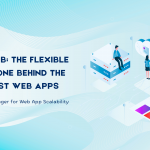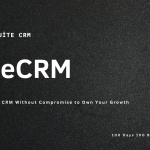
Unlock White Labeling Software Agreement
White Label Software Agreement. White labeling refers to the practice of rebranding and reselling software developed by one company under the brand name of another. This arrangement allows businesses to offer a product or service without investing the time and resources required for in-house development.
In the dynamic landscape of the tech industry, staying ahead often involves strategic collaborations and innovative solutions. One such strategy gaining prominence is white labeling, a concept that has revolutionized software development and distribution. This post is intended to delve into the intricacies of white labeling software agreements, exploring what they are, their benefits, and the key considerations for a successful partnership.
White label software: How does it work?
The white label software agreement involves a developer or a software development company creating a flexible, generic product that can be easily adapted to the client’s requirement. The client can personalize the software to align with their brand aesthetics and messaging. This arrangement enables the client to launch a product quickly without the need for extensive development cycles. The end result is a seamless integration of the software into the business, enhancing their market presence.
The final product can also be marketed and sold by the client under their brand name. This allows businesses to offer solutions without the need for extensive in-house development, accelerating time-to-market and reducing costs.

Key Components
Customizable : A successful white label software provides room for customization to meet the specific needs and branding requirements of the client.
Support and Maintenance : Clear guidelines on support and maintenance responsibilities must be outlined in the agreement to ensure a smooth and efficient partnership.
Revenue sharing in case of reselling : The financial aspect of the agreement, including pricing structures and revenue sharing models, should be transparent and mutually beneficial for both parties.
Intellectual Property Rights : The agreement should explicitly define the ownership and usage rights of the intellectual property involved, safeguarding the interests of both the developer and the client.
Scalability : The agreement should outline scalability options to accommodate the growth of the Client’s business. This includes provisions for scaling the software to meet increased demand or expanding its features as the market evolves.
Data Security and Privacy : Clear guidelines on data security and privacy measures are crucial components. The agreement should address how sensitive information will be handled, stored, and protected, ensuring compliance with relevant regulations and industry standards.
Exit Strategies : Clear exit strategies should be established in case either party wishes to terminate the agreement. This includes provisions for the transition of services, data, and any ongoing support to minimize disruptions for both parties.
Performance Metrics and Reporting: In the event of disputes, the agreement should detail the mechanisms for resolution, whether through arbitration, mediation, or another agreed-upon process. This helps prevent legal complications and ensures a more amicable resolution.
Compliance and Legal Considerations: Ensure that the white label software adheres to legal requirements and industry regulations. The agreement should outline the responsibilities of both parties regarding compliance, intellectual property rights, and any legal obligations associated with the software.

Benefits of White Label Software
Do you know, according to research by Statista, Enterprise software has the largest share of the overall software market, with worldwide revenues amounting to over 200 billion U.S. dollars in 2021. 2021 was during COVID. With the outbreak of coronavirus, while the growth was expected to slow or go down, the industry resumed stronger. Application development and Enterprise software marked the strongest revenue increase. The top-level software segments that saw growth worldwide included Productivity Software, Enterprise Software, as well as System Infrastructure Software and Application Development Software. The majority of software solutions in these market segments are designed to be used in a professional environment, but may also be used privately.
Owning a custom software version of an existing software is increasingly helping companies to own a private and upgraded version of a generic-version of the same software.
Rapid Market Entry : White labeling accelerates time-to-market significantly. Businesses can swiftly implement the software to their business or launch products without the need for extensive development cycles, gaining a competitive edge.
Cost-effectiveness : By leveraging existing software solutions, companies can avoid the high costs associated with in-house development, including hiring skilled developers, testing, and ongoing maintenance.
Focus on Growth : White labeling allows businesses to concentrate on their core strengths while relying on the expertise of software developers for complementary solutions.
As the tech industry continues to evolve, the white label software model presents a compelling opportunity for businesses seeking innovation and efficiency. A well-crafted white label software agreement, grounded in transparency and mutual benefit, can foster successful collaborations that drive growth and profitability. Embrace the power of white labeling, and unlock new possibilities for your business in the competitive tech landscape.
Looking for more details or do you have plans to grow your business with a software built under White Label Agreement?
Reach our team and we assure to have your plan strategized and developed into reality.







Leave a reply